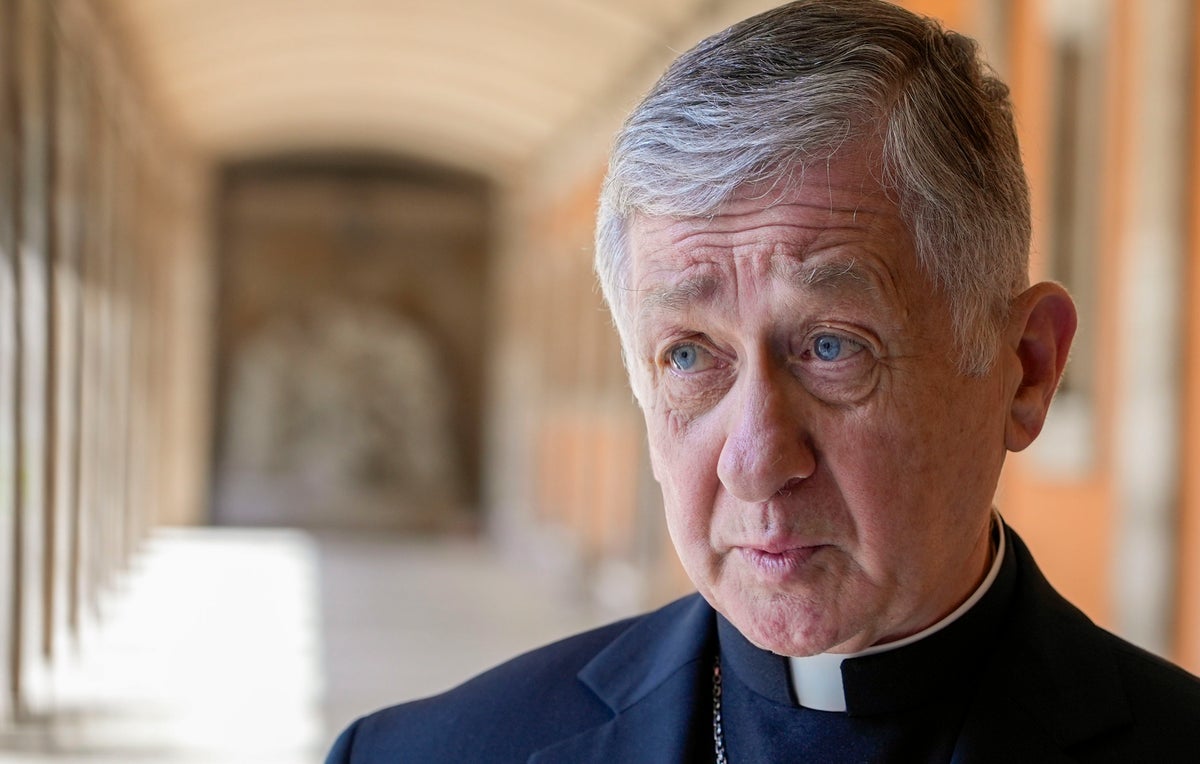
The archbishop of Chicago urged the Illinois attorney general on Thursday to provide information about newly uncovered cases of clergy sexual abuse that were included in a statewide investigative report, saying he would gladly add the names on his list of credibly accused priests if the claims were substantiated.
In his first interview since the report was released Tuesday, Cardinal Blase Cupich expressed surprise that the 125 new cases involved some priests he had never heard of. He voiced dismay that the attorney general’s office hadn’t forwarded the new claims to the archdiocese to look into, as it had done during the five-year investigation.
“We thought we had that kind of relationship with the attorney general and so are disappointed that we’re hearing these for the first time,” Cupich said.
He spoke to The Associated Press during one of his periodic visits to the Vatican, where he sits on church committees and serves as a close adviser to Pope Francis.
In the report, investigators found that more than 450 Catholic clergy in Illinois’ six dioceses had sexually abused nearly 2,000 children since 1950, making clear the problem was far worse than the hierarchy had acknowledged in 2018 at the start of the state’s review. The archdiocese of Chicago, the third largest in the United States, had reported 68 abusive clergy in 2018. Over the course of the investigation, it added more names and went into Tuesday with 150 names on its list of credibly accused clergy.
Attorney General Kwame Raoul’s report found 125 additional abusers in the archdiocese, many of them religious order priests whose cases wouldn’t necessarily have been handled by the archdiocese but their religious orders. There was also the likelihood that victims went directly to the attorney general's investigators, bypassing the church entirely to report claims.
Cupich said he would gladly add the names onto his list but needed information on how Raoul’s investigators substantiated the claims. Asked why it wasn’t sufficient for the church to accept cases that the attorney general’s office had substantiated, Cupich said the archdiocese just needed to understand the process.
“I can assure the public this: If these cases are substantiated and we’re given the information of how it was (done), we will put them on our website,” he said, speaking in the courtyard of the Pontifical North American College, the American seminary in Rome where Cupich stays when in town on Vatican business.
Cupich acknowledged the report laid bare a constant, structural problem in the way the Catholic Church handles abuse cases, with religious orders such as the Jesuits, Franciscans, Oblates and Marists often escaping scrutiny and accountability since they, and not the diocesan leadership, keep personnel files. Cupich concurred there was more the Holy See could and should do to bring religious orders into line.
“Should, in fact, there be more direction from the central office of the church to speak to religious orders? I would be in favor of that,” he said. “I want to make sure that we put everything out there, because I can tell you this: When we do that and a victim survivor sees it, it brings healing. That’s why I do it.”
Cupich said he would be willing to refuse to let priests of noncompliant orders work in his archdiocese, as recommended by the report, though he said he’d “rather use the carrot than the stick, because we do need these religious orders."
On another recommendation from the report, however, Cupich was more defensive. Raoul's investigators called for an independent mediation and compensation process for victims similar to what the archdioceses of Los Angeles and New York have established. The report argues that third-party process gives victims a “confidential non-adversarial place outside of the control of the diocese to be heard and to be financially compensated for the trauma inflicted on them.”
Cupich said he didn’t want to outsource the compensation process because that would deprive the church of the chance to provide pastoral care to victims. He said he would continue with the process he has had in place for years.
“My concern about contracting this out to a separate third party is that we turn ourselves into a business, not a church,” he said.







